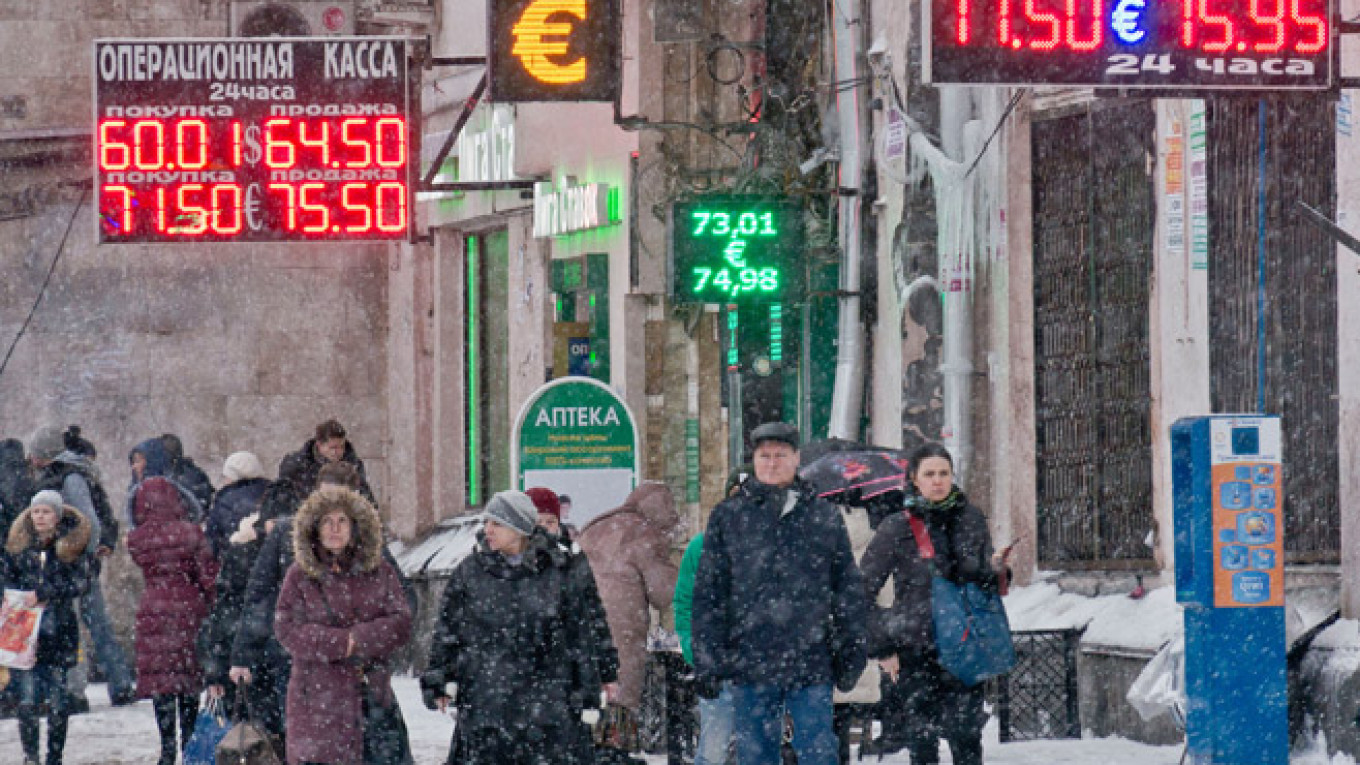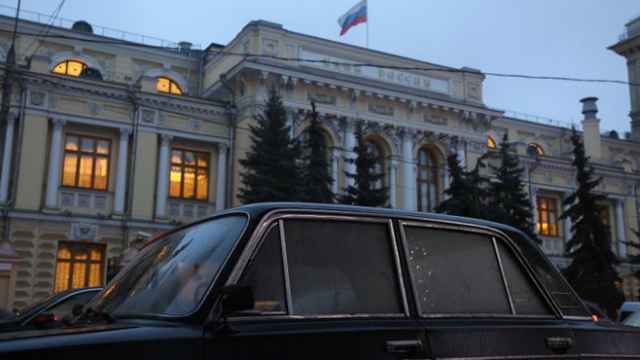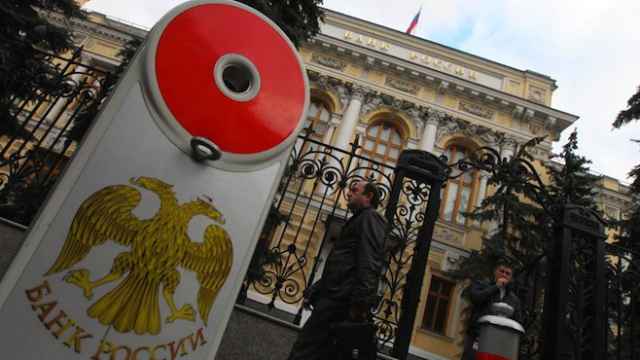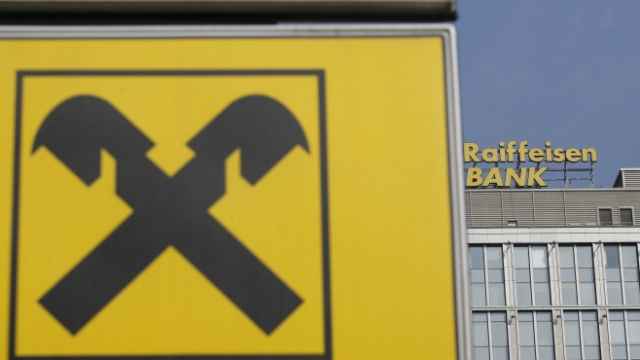Russian banks have urged the Central Bank to sharply cut interest rates to prevent a wave of corporate bankruptcies and collapsing demand for loans as Russia's economy heads for deep recession, the head of a banking association said Monday.
The regulator hiked interest rates to 17 percent last month in a crisis measure to restrain the collapse of Russia's ruble currency, which has been dragged down by oil price falls and Western sanctions over Ukraine. The move helped cool panic on the currency markets, but sent the cost of borrowing skyrocketing.
Anatoly Aksakov, president of the Association of Regional Banks of Russia, said the Central Bank has to cut rates this month to limit the damage on business and the banking sector.
"A decrease in the key rate by about 2 percent from the current extreme highs would give a signal to the market that overall, the situation is under control and that the rate will be lowered further," he told the Moscow Times. Aksakov said it would help the market if rates returned to their mid-December level of 10.5 percent by summer.
One year ago, the Central Bank's interest rate was 5.5 percent. Despite a series of rate rises, inflation had soared past 11 percent by the year's end and the ruble had lost over 40 percent of its value to the U.S. dollar. A halving in the price of oil, Russia's main export, since last summer is set to push the country into a deep recession this year. Western sanctions have tightened access to credit, and rising borrowing costs will hamper growth still further.
Lack of financing has already hit the corporate sector and substantially increased the risk of companies being unable to repay their debts, said Vladimir Tikhomirov, chief economist at financial group BCS.
Within a week of the Central Bank's December rate hike, banks started to increase the interest rates for loans, revising even previously closed contracts.
Russia's biggest lender Sberbank said in December that it had been forced to increase rates, which for unsecured individual loans jumped from less than 20 to over 35 percent. Two-year loans for small businesses went up from 20 to 24 percent.
"In some cases [banks] increased rates by three times, from 12 to 36 percent," business ombudsman Boris Titov told online newspaper Gazeta.ru in an interview last week.
The rate hikes have caused some companies to go bankrupt because they could not pay the steep price for their loans, Titov said, adding that he was familiar with two such cases so far.
The high Central Bank rate has also driven down demand for loans, especially from reliable borrowers, banking analysts said.
According to Aksakov, demand for loans was very slow last year even at an average lending rate of 20 percent.
Despite the negative effect on businesses, analysts were skeptical that the Central Bank would hear the plea and cut rates soon.
"We expect inflation to continue its growth through at least the first quarter this year, probably going beyond 14 percent in the first two months of 2015, which means the Central Bank will have no incentive to decrease its key rate," Tikhomirov said.
Contact the author at a.panin@imedia.ru
A Message from The Moscow Times:
Dear readers,
We are facing unprecedented challenges. Russia's Prosecutor General's Office has designated The Moscow Times as an "undesirable" organization, criminalizing our work and putting our staff at risk of prosecution. This follows our earlier unjust labeling as a "foreign agent."
These actions are direct attempts to silence independent journalism in Russia. The authorities claim our work "discredits the decisions of the Russian leadership." We see things differently: we strive to provide accurate, unbiased reporting on Russia.
We, the journalists of The Moscow Times, refuse to be silenced. But to continue our work, we need your help.
Your support, no matter how small, makes a world of difference. If you can, please support us monthly starting from just $2. It's quick to set up, and every contribution makes a significant impact.
By supporting The Moscow Times, you're defending open, independent journalism in the face of repression. Thank you for standing with us.
Remind me later.






